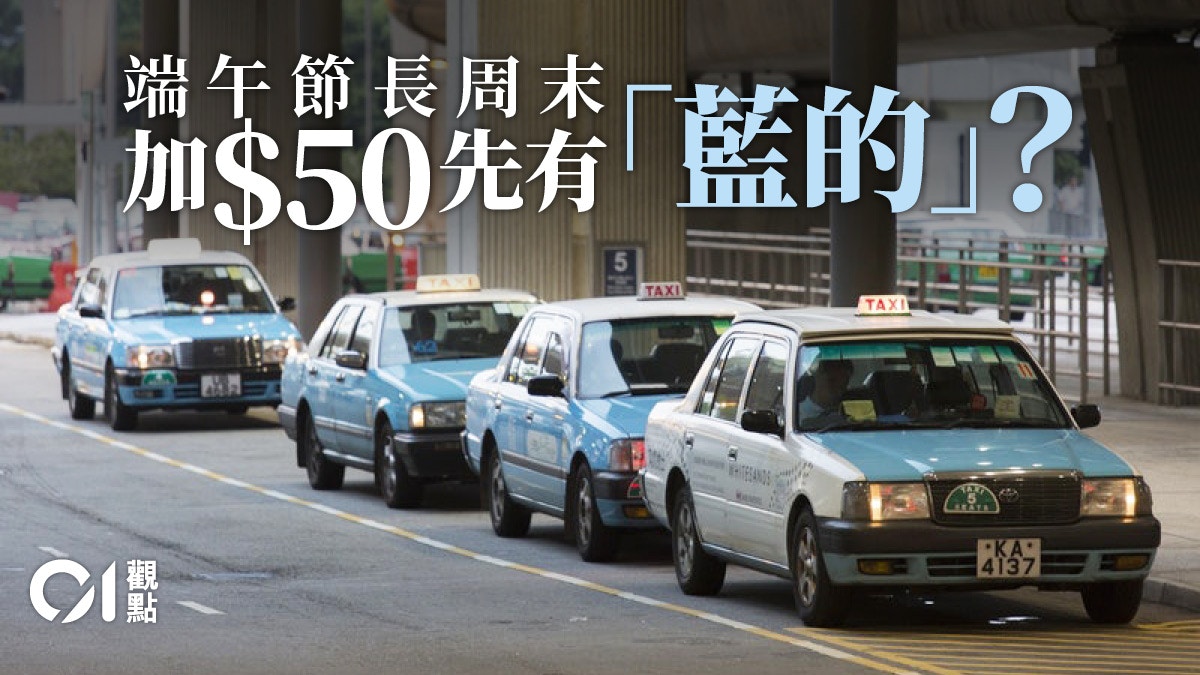01 view
Written by: Commentary Editing Room
2021-06-15 17:40
Last update date: 2021-06-15 17:40
Under the epidemic, citizens cannot travel abroad, and local travel has become the first choice for many people.
During the long weekend of the Dragon Boat Festival, there was a long queue at the Lantau taxi station in Tung Chung. However, the media found that many Lantau taxis ("blue") refused to carry passengers in the station and only accepted telephone calls.
Even though the government issued 25 additional "blue" licenses in 2016, the drivers "picking customers" and asking for "tips" have not disappeared.
With the completion of projects in the new towns of North Lantau in the future, it is believed that the shortage of demand will become more serious.
Some reporters took the long weekend of the Dragon Boat Festival to Lantau Island to observe the demand for taxi services.
In addition to the long queues, reporters also saw taxi drivers waiting for passengers "Han Qi" at the station.
When the reporter knocked on the window to ask, the driver refused to pick up and handed over the call service card.
Later, the reporter discovered that no driver was willing to take the order even if he used the on-call service. However, after he charged a meter-based fee and added a "tip" of 50 yuan, the operator immediately changed his statement that there would be a car in 15 minutes.
"Blue" zaike has existed for many years
However, this is nothing new.
As early as 2015, there were media reports that people in Lantau Island are "difficult to find", and the waiting time for a bus is often measured in hours. According to industry analysts, the situation of "blue" drivers "choosing customers" is serious. They tend to only take the short-distance route between the airport and Tung Chung, rather than the South Lantau route, which has fewer repeat customers.
Similarly, in 2017, some media pointed out that "blue" drivers "slaughtered customers" were rampant during the Easter holiday, and passengers had to add an extra $100 for "tips" before they could receive call-call services.
(Profile picture / Photo by Yu Junliang)
The government has been freezing the number of Lantau taxi licenses since 1997. It was not until 2015 that 25 more licenses were issued due to the increase in the population and the number of tourists in the area, but the total number is still 75.
If compared by the ratio of the population of the geographical constituencies to the number of taxis, the area served by urban taxis is 240 people/vehicle, New Territories taxis are about 1.3 thousand people/vehicle, and Lantau’s taxis are about 1.9 thousand people/vehicle.
In theory, although "red" can travel across districts to make up for the insufficient number of taxis in other areas, firstly, Tung Chung Road and South Lantau Island have been excluded from their walking range, and secondly, there are very few "red" drivers. Cross-regional operations to Lantau Island.
Therefore, "blue" may be regarded as the link with the largest difference in supply and demand among the three types of taxis.
Can strengthen competition solve the problem?
This indirectly explains why the "blue" picking customers and even the poor service.
In the case of an imbalance between supply and demand, "blue" drivers do not have to worry about no passengers at all, nor do they need to worry about a large number of peer competition like "red" drivers. Especially when the number of tourists on holidays increases, their consideration is not just how to use their time wisely. Picking up the most guests is how to make good use of time to earn the most fare, so the return of each trip becomes the primary consideration.
As a result, as mentioned above, if the driver "buried the station" to pick up passengers, he might encounter passengers heading to South Lantau Island and other areas, greatly increasing the chances of an "empty car" returning.
It would be better to wait for the call station to "deliver the order." Anyway, in the case of "difficulties for one," people are willing to pay additional "tips" to ask for a car.
However, in addition to correcting the situation of "slaughtering customers" that has existed for many years, the authorities must also take into account the huge demand after the completion of new towns in the future.
Even if the population of the district is less than 150,000, the "blue" services are already in short supply. However, after the expansion of the Tung Chung New Town from 2024 to 2028, the estimated population will increase by 64,000. Taxi services will Even more nervous.
Therefore, in addition to issuing additional "blue" licenses in the short term, the government can strengthen competition in the industry and eliminate "slaughtering passengers". In the long run, it may study and implement a "taxi free travel" program to abolish restrictions on restricted walking areas and allow drivers to move freely according to their needs. The current situation of supply and demand imbalance in a certain area is automatically filled with a market mechanism.
Uber drivers in the UK finally "equal rights", Hong Kong's labor rights to be protected
The key to the coexistence of taxis and Uber lies in ``de-exploitation''
Hong Kong Uber finally loses the lawsuit and keeps pace with technological innovation
Hong Kong people's rides need to be resolved by non-Uber lawsuits
Taxi Taxi overcharging Tung Chung 01 Viewpoint





